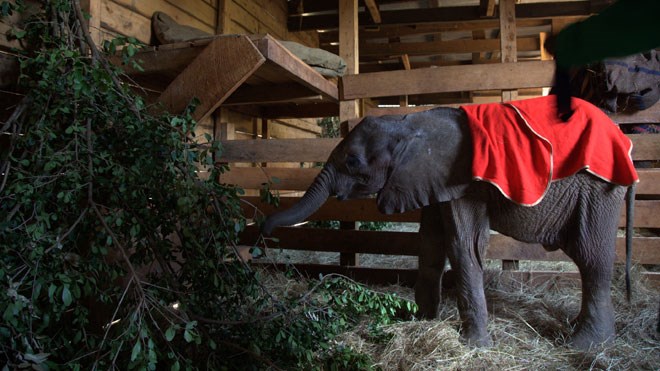African wildlife preserves have become a war zone, according to Ron Orenstein, a world-leading expert on the elephant tusk (ivory) and rhinoceros horn trade.
Poachers from armed terrorist organizations such as The Lord's Resistance Army and Al Shabaab use machine guns or poison to kill elephants and rhinoceroses for their tusks and horns, he said.
Because the poachers need to leave the area as quickly as possible, they use chainsaws and axes to butcher the animals. They use the money from their spoils to purchase arms.
Orenstein estimates the ivory and rhinoceros tusk trade to both be in the billions.
The rangers entrusted to their care in countries such as Kenya and Zimbabwe are entitled to shoot and kill these poachers. But more than 1,000 rangers have been killed in the line of duty over the past decade.
Still, the wild populations of these large, majestic animals is dropping dramatically, said Orenstein.
There's currently about 400,000 wild elephants left in Africa, down from 1.2 million back in the 1970s, he said. There's about 40,000 to 60,000 elephants left in Asia, which includes semi-domesticated animals.
By the time 2013 draws to a close, an estimated 38,000 elephants in Africa will have been poached this year.
“One organization last year set the number at 96 elephants a day, or one elephant every 15 minutes,” he said.
As for rhinoceroses, there's a little more than 30,000 animals left in the wild around the world. Two rhinoceros subspecies have become extinct in the last few years.
Orenstein, the Toronto-based author of the book “Ivory, Horn and Blood,” will share some of these facts at a Dec. 7 talk at Science North's Vale Cavern.
Following his talk, Science North staff scientist Bruce Doran will also give a presentation on the David Sheldrick Elephant Orphanage in Kenya.
Orenstein, a lawyer who also has a PhD in zoology, was involved in the fight to ban the international trade of ivory, something which occurred back in 1989, although some has since been sold legally to China and Japan.
Following a ban, it became taboo in western countries for people to own or purchase ivory. That's just what needs to happen in Asia, which is currently the chief market for ivory and rhinoceros horn, he said.
As people have become more affluent in countries such as China, Japan or Vietnam, they feel the need to conspicuously show off their wealth.
Sometimes that takes the form of purchasing ivory carvings or jewellery, or even serving powdered rhinoceros tusk — which Orenstein said is as expensive as cocaine — in alcoholic drinks.
Rhinoceros tusk is also thought by some in Vietnam to improve sexual potency or even cure cancer.
But the advocacy group WildAid is working in Asia to change people's attitudes towards purchasing such products, Orenstein said.
They've enlisted celebrities such as retired basketball player Yao Ming and actor Jacky Chan to campaign against purchasing ivory, with the slogan “when the buying stops, the killing can too.”
Given the number of people who have been killed while protecting elephants and rhinoceroses — not to mention by groups funded by poaching — the international community is starting to realize the seriousness of the issue, Orenstein said.
“I say at the end of the book that a lot of that blood is human blood,” he said.
“We need much stricter penalties in many places. In many cases the penalties are minimal. The world is at least finally waking up to the fact that this an important international law enforcement and governance and social economic issue, as well as a conservation issue.”
Doors to the talk open at 6:30 p.m., and the event starts at 7 p.m. Tickets cost $10, and are available in advance at Old Rock on Minto Street, and The Wellness Shoppe on Regent Street.
Copies of Orenstein's book will be available for purchase and signing at the event.
